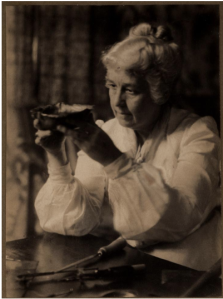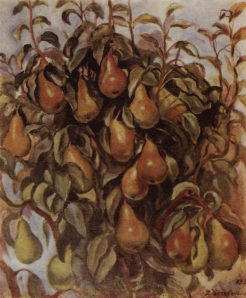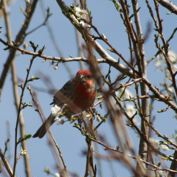‘How would it do for a smoking-room?’ ‘Just the very place! only, you know, Roger, you must not
think of smoking in the house. I am almost afraid that having just a plain, common man around, let alone a smoking man, will upset Aunt Hannah. She is New England—Vermont New England—boiled down.’
 ‘You leave Aunt Hannah to me; I’ll find her tender side. I’m going to ask her about the old sea-captain and the yellow calico.’
‘You leave Aunt Hannah to me; I’ll find her tender side. I’m going to ask her about the old sea-captain and the yellow calico.’
‘Not yellow calico—blue chintz.’ ‘Well, yellow shell then.’ ‘No, no! don’t mix it up so; you won’t know yourself what
to expect, and that’s half the fun.’ ‘Now you tell me again exactly what to expect; to tell the truth, I didn’t half hear about it the other day; I was wool- gathering. It was something queer that happened when you were a child, wasn’t it?’
‘Something that began to happen long before that, and kept happening, and may happen again; but I hope not.’ ‘What was it?’ ‘I wonder if the other people in the car can hear us?’ ‘I fancy not; we don’t hear them—not consecutively, at least.’
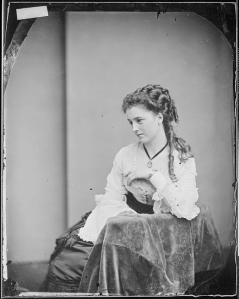 ‘Well, mother was born in Vermont, you know; she was the only child by a second marriage. Aunt Hannah and Aunt Maria are only half-aunts to me, you know.’ ‘I hope they are half as nice as you are.’ ‘Roger, be still; they certainly will hear us.’ ‘Well, don’t you want them to know we are married?’ ‘Yes, but not just married. There’s all the difference in the
‘Well, mother was born in Vermont, you know; she was the only child by a second marriage. Aunt Hannah and Aunt Maria are only half-aunts to me, you know.’ ‘I hope they are half as nice as you are.’ ‘Roger, be still; they certainly will hear us.’ ‘Well, don’t you want them to know we are married?’ ‘Yes, but not just married. There’s all the difference in the 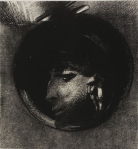 world.’ ‘You are afraid we look too happy!’ ‘No; only I want my happiness all to myself.’ ‘Well, the little room?
world.’ ‘You are afraid we look too happy!’ ‘No; only I want my happiness all to myself.’ ‘Well, the little room?
’‘My aunts brought mother up; they were nearly twenty years older than she. I might say Hiram and they brought her up. You see, Hiram was bound out to my grandfather when he was a boy, and when grandfather died Hiram said he “s’posed he went with the farm, long o’ the critters,” and he has been there ever since. He was my mother’s only refuge from the decorum of my aunts. They are simply workers. They make me think of the Maine woman who wanted her epitaph to be: “She was a hard working woman.” “They must be almost beyond their working-days. How old are they? “Seventy, or thereabouts; but they will die standing; or, at least, on a Saturday night, after all the house-work is done up. They were rather strict with mother, and I think she had a lonely childhood. The house is almost a mile away from any neighbors, and off on top of what they call 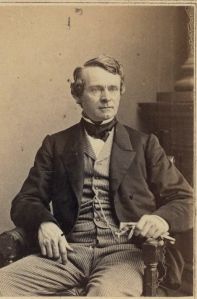 Stony Hill. It is bleak enough up there, even in summer.
Stony Hill. It is bleak enough up there, even in summer.
‘When mamma was about ten years old they sent her to cousins in Brooklyn, who had children of their own, and knew more about bringing them up. She staid there till she was married; she didn’t go to Vermont in all that time, and of course hadn’t seen her sisters, for they never would leave home for a day. They couldn’t even be induced to go to Brooklyn to her wedding, so she and father took their wedding trip 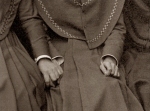 up there.’ ‘And that’s why we are going up there on our own?’ ‘Don’t, Roger; you have no idea how loud you speak.’ ‘You never say so except when I am going to say that one little word.’ ‘Well, don’t say it, then, or say it very, very quietly.’ ‘Well, what was the queer thing?’ ‘When they got to the house, mother wanted to take father right off into the little room; she had been telling him about it, just as I am going to tell you, and she had said that of all the rooms, that one was the only one that seemed pleasant to her. She described the furniture and the books and paper and every- thing, and said it was on the north side, between the front and back room. Well, when they went to look for it, there was no little room there; there was only a shallow china-closet. She asked her sisters when the house had been altered and a closet made of the room that used to be there. They both said the house was exactly as it had been built—that they had never made any changes, except to tear down the old wood-shed and build a smaller one.
up there.’ ‘And that’s why we are going up there on our own?’ ‘Don’t, Roger; you have no idea how loud you speak.’ ‘You never say so except when I am going to say that one little word.’ ‘Well, don’t say it, then, or say it very, very quietly.’ ‘Well, what was the queer thing?’ ‘When they got to the house, mother wanted to take father right off into the little room; she had been telling him about it, just as I am going to tell you, and she had said that of all the rooms, that one was the only one that seemed pleasant to her. She described the furniture and the books and paper and every- thing, and said it was on the north side, between the front and back room. Well, when they went to look for it, there was no little room there; there was only a shallow china-closet. She asked her sisters when the house had been altered and a closet made of the room that used to be there. They both said the house was exactly as it had been built—that they had never made any changes, except to tear down the old wood-shed and build a smaller one.
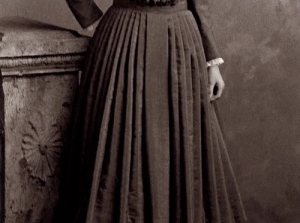 ‘Father and mother laughed a good deal over it, and when anything was lost they would always say it must be in the little room, and any exaggerated statement was called “little-roomy.” When I was a child I thought that was a regular English phrase, I heard it so often. ‘Well, they talked it over, and finally they concluded that my mother had been a very imaginative sort of a child, and had read in some book about such a little room, or perhaps even dreamed it, and then had “made believe,” as children do, till she herself had really thought the room was there.’
‘Father and mother laughed a good deal over it, and when anything was lost they would always say it must be in the little room, and any exaggerated statement was called “little-roomy.” When I was a child I thought that was a regular English phrase, I heard it so often. ‘Well, they talked it over, and finally they concluded that my mother had been a very imaginative sort of a child, and had read in some book about such a little room, or perhaps even dreamed it, and then had “made believe,” as children do, till she herself had really thought the room was there.’
‘Why, of course, that might easily happen.’
‘Yes, but you haven’t heard the queer part yet; you wait and see if you can explain the rest as easily.
‘They stayed at the farm two weeks, and then went to New York to live. When I was eight 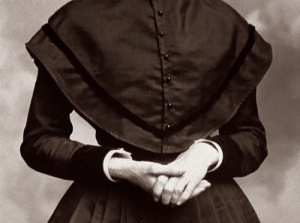 years old my father was killed in the war, and mother was broken-hearted. She never was quite strong afterwards, and that summer we decided to go up to the farm for three months.
years old my father was killed in the war, and mother was broken-hearted. She never was quite strong afterwards, and that summer we decided to go up to the farm for three months.
‘I was a restless sort of a child, and the journey seemed very long to me; and finally, to pass the time, mamma told me the story of the little room, and how it was all in her own imagination, and how there really was only a china-closet there.
‘She told it with all the particulars; and even to me, who knew beforehand that the room wasn’t there, it seemed just as real as could be. She said it was on the north side, between the front and back rooms; that it was very small, and they some- times called it an entry. There was a door also that opened out- of-doors, and that one was painted green, and was cut in the middle like the old Dutch doors, so that it could be used for a window by opening the top part only. Directly opposite the door was a lounge or couch;  it was covered with blue chintz— India chintz—some that had been brought over by an old Salem sea-captain as a “venture.” He had given it to Hannah when she was a young girl. She was sent to Salem for two years to school. Grandfather originally came from Salem.’
it was covered with blue chintz— India chintz—some that had been brought over by an old Salem sea-captain as a “venture.” He had given it to Hannah when she was a young girl. She was sent to Salem for two years to school. Grandfather originally came from Salem.’
‘I thought there wasn’t any room or chintz.’ ‘That is just it. They had decided that  mother had imagined it all, and yet you see how exactly everything was painted in her mind, for she had even remembered that Hiram had told her that Hannah could have married the sea-captain if she had wanted to!
mother had imagined it all, and yet you see how exactly everything was painted in her mind, for she had even remembered that Hiram had told her that Hannah could have married the sea-captain if she had wanted to!
‘The India cotton was the regular blue stamped chintz, with the peacock figure on it. The head and body of the bird were in profile, while the tail was full front view behind it. It had seemed to take mamma’s fancy, and she drew it for me on a piece of paper as she talked. Doesn’t it seem strange to you that she could have made all that up, or even dreamed it?
‘At the foot of the lounge were some hanging shelves with some old books on them. All the books were leather-colored except one; that was bright red, and was called the Ladies’ Album. It made a bright break between the other thicker books. ‘On the lower shelf was a beautiful pink sea-shell, lying on a mat made of balls of red shaded worsted. This shell was greatly coveted by 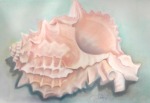 mother, but she was only allowed to play with it when she had been particularly good. Hiram had shown her how to hold it close to her ear and hear the roar of the sea in it.
mother, but she was only allowed to play with it when she had been particularly good. Hiram had shown her how to hold it close to her ear and hear the roar of the sea in it.
‘I know you will like Hiram, Roger; he is quite a character in his way.
‘Mamma said she remembered, or thought she remembered, having been sick once, and she had to lie quietly for some days on the lounge; then was the time she had become so familiar with everything in the room, and she had been allowed to have the shell to play with all the time. She had had her toast brought to her in there, with 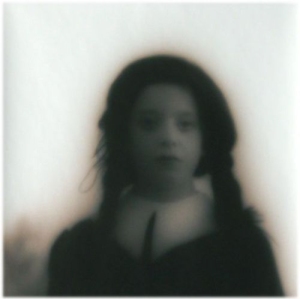 make-believe tea. It was one of her pleasant memories of her childhood; it was the first
make-believe tea. It was one of her pleasant memories of her childhood; it was the first  time she had been of any importance to anybody, even herself.
time she had been of any importance to anybody, even herself.
‘Right at the head of the lounge was a light-stand, as they called it, and on it was a very brightly polished brass candle- stick and a brass tray, with snuffers. That is all I remember of her describing, except that there was a braided rag rug on the floor, and on the wall was a beautiful flowered paper—roses and morning-glories in a wreath on a light blue ground. The same paper was in the front room.’
‘And all this never existed except in her imagination?’
‘She said that when she and father went up there, there wasn’t any little room at all like it anywhere in the house; there was a china-closet where she had believed the room to be.’ ‘And your aunts said there had never been any such room.’ ‘That is what they said.’ ‘Wasn’t there any blue chintz in the house with a peacock
figure?’ ‘Not a scrap, and Aunt Hannah said there had never been any that she could remember; and Aunt Maria just echoed her—she always does that. You see, Aunt Hannah is an up-and-down New England woman. She looks just like herself; I mean, just like her character. Her joints move up and down or backward and forward in a plain square fashion. I don’t believe she ever leaned on anything in her life, or sat in an easy-chair. But Maria is different; she is rounder and 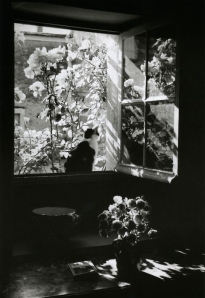 softer; she hasn’t any ideas of her own; she never had any. I don’t believe she would think it right or becoming to have one that differed from Aunt Hannah’s, so what would be the use of having any? She is an echo, that’s all.
softer; she hasn’t any ideas of her own; she never had any. I don’t believe she would think it right or becoming to have one that differed from Aunt Hannah’s, so what would be the use of having any? She is an echo, that’s all.
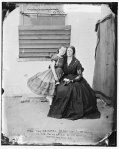 ‘When mamma and I got there, of course I was all excitement to see the china-closet, and I had a sort of feeling that it would be the little room after all. So I ran ahead and threw open the door, crying, “Come and see the little room.”
‘When mamma and I got there, of course I was all excitement to see the china-closet, and I had a sort of feeling that it would be the little room after all. So I ran ahead and threw open the door, crying, “Come and see the little room.”
‘And Roger,’ said Mrs. Grant, laying her hand in his, ‘there really was a little room there, exactly as mother had remembered it. There was the lounge, the peacock chintz, the green door, the shell, the morning-glory, and rose paper, everything exactly as she had described it to me.’
‘What in the world did the sisters say about it?’
‘Wait a minute and I will tell you. My mother was in the front hall still talking with Aunt Hannah. She didn’t hear me at first, but I ran out there and dragged her through the front room, saying, “The room is here—it is all right.”
‘It seemed for a minute as if my mother would faint. She clung to me in terror. I can remember now how strained her eyes looked and how pale she was.
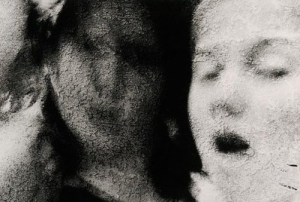 ‘I called out to Aunt Hannah and asked her when they had had the closet taken away and the little room built; for in my excitement I thought that that was what had been done.
‘I called out to Aunt Hannah and asked her when they had had the closet taken away and the little room built; for in my excitement I thought that that was what had been done.
‘“That little room has always been there,” said Aunt Hannah, “ever since the house was built.”
‘“But mamma said there wasn’t any little room here, only a china-closet, when she was here with papa,” said I.‘“No, there has never been any china-closet there; it has always been just as it is now,” said Aunt Hannah.
‘Then mother spoke; her voice sounded weak and far off. She said, slowly, and with an effort, “Maria, don’t you remember that you told me that there had never been any little room here? and Hannah said so too, and then I said I must have dreamed it?”
‘“No, I don’t remember anything of the kind,” said Maria, without the slightest emotion. “I don’t remember you ever said anything about any 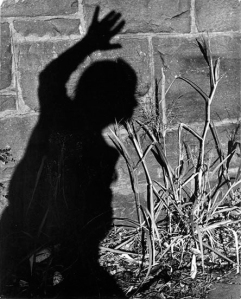 china-closet. The house has never been altered; you used to play in this room when you were a child, don’t you remember?”
china-closet. The house has never been altered; you used to play in this room when you were a child, don’t you remember?”
‘“I know it,” said mother, in that queer slow voice that made me feel frightened. “Hannah, don’t  you remember my finding the china-closet here, with the gilt-edged china on the shelves, and then you said that the china-closet had always been here?”
you remember my finding the china-closet here, with the gilt-edged china on the shelves, and then you said that the china-closet had always been here?”
‘“No,” said Hannah, pleasantly but unemotionally—“no, I don’t think you ever asked me about any china-closet, and we haven’t any gilt-edged china that I know of.”
‘And that was the strangest thing about it. We never could make them remember that there had ever been any question about it. You would think they could remember how surprised mother had been before, unless she had imagined the whole thing. Oh, it was so queer! They were always pleasant about it, but they didn’t seem to feel any interest or curiosity. It was always this answer: “The house is just as it was built; there have never been any changes, so far as we know.”
‘And my mother was in an agony of perplexity. How cold their gray eyes looked to me! There was no reading anything in them. It just seemed to break my mother down, this queer thing. Many times that summer, in the middle of the night, I have seen her get up and take a candle and creep softly down- stairs. I could hear the steps creak under her weight. Then she would go through the  front room and peer into the darkness, holding her thin hand between the candle and her eyes. She seemed to think the little room might vanish. Then she would come back to bed and toss about all night, or lie still and shiver; it used to frighten me.
front room and peer into the darkness, holding her thin hand between the candle and her eyes. She seemed to think the little room might vanish. Then she would come back to bed and toss about all night, or lie still and shiver; it used to frighten me.
‘She grew pale and thin, and she had a little cough; then she did not like to be left alone.  Sometimes she would make errands in order to send me to the little room for something—a book, or her fan, or her handkerchief; but she would never sit there or let me stay in there long, and sometimes she wouldn’t let me go in there for days together. Oh, it was pitiful!’
Sometimes she would make errands in order to send me to the little room for something—a book, or her fan, or her handkerchief; but she would never sit there or let me stay in there long, and sometimes she wouldn’t let me go in there for days together. Oh, it was pitiful!’
‘Well, don’t talk any more about it, Margaret, if it makes you feel so,’ said Mr. Grant.
‘Oh yes, I want you to know all about it, and there isn’t much more—no more about the room.
‘Mother never got well, and she died that autumn. She used often to sigh, and say, with a wan little laugh, “There is one thing I am glad of, Margaret: your father knows now all about the little room.” I think she was afraid I distrusted her. Of course, in a child’s way, I thought there was something queer about it, but I did not brood over it. I was too young then, and took it as a part of her illness. But, Roger, do you know, it really did affect me. I almost hate to go there after talking about it; I somehow feel as if it might, you know, be a china-closet again.’
‘That’s an absurd idea.’
‘I know it; of course it can’t be. I saw the room, and there isn’t any china-closet there, and no gilt-edged china in the house, either.’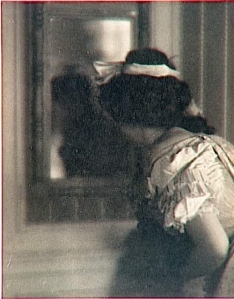
And then she whispered: ‘But, Roger, you may hold my hand as you do now, if you will, when we go to look for the little room.’
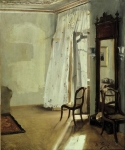 ‘And you won’t mind Aunt Hannah’s gray eyes?’ ‘I won’t mind anything.’ It was dusk when Mr. and Mrs. Grant went into the gate under the two old Lombardy poplars and walked up the narrow path to the door, where they were met by the two aunts.
‘And you won’t mind Aunt Hannah’s gray eyes?’ ‘I won’t mind anything.’ It was dusk when Mr. and Mrs. Grant went into the gate under the two old Lombardy poplars and walked up the narrow path to the door, where they were met by the two aunts.
Hannah gave Mrs. Grant a frigid but not unfriendly kiss; and Maria seemed for a moment to tremble on the verge of an emotion, but she glanced at Hannah, and then gave her greeting in exactly the same repressed and non-committal way.
Supper was waiting for them. On the table was the gilt-edged china. Mrs. Grant didn’t notice it immediately, till she saw her husband smiling at her over his teacup; then she felt fidgety, and couldn’t eat. She was nervous, and kept wondering what was behind her, whether it would be a little room or a closet.
After supper she offered to help about the dishes, but, mercy! she might as well have offered to help bring the seasons round; Maria and Hannah couldn’t be helped.
So she and her husband went to find the little room, or closet, or whatever was to be there.
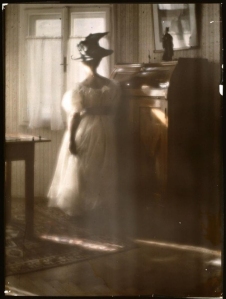 Aunt Maria followed them, carrying the lamp, which she set down, and then went back to the dish-washing.
Aunt Maria followed them, carrying the lamp, which she set down, and then went back to the dish-washing.
Margaret looked at her husband. He kissed her, for she seemed troubled; and then, hand in hand, they opened the door. It opened into a china-closet. The shelves were neatly draped with scalloped  paper; on them was the gilt-edged china, with the dishes missing that had been used at the supper, and which at that moment were being carefully washed and wiped by the two aunts.
paper; on them was the gilt-edged china, with the dishes missing that had been used at the supper, and which at that moment were being carefully washed and wiped by the two aunts.
Margaret’s husband dropped her hand and looked at her. She was trembling a little, and turned to him for help, for some explanation, but in an instant she knew that something was wrong. A cloud had come between them; he was hurt; he was antagonized.
He paused for an appreciable instant, and then said, kindly enough, but in a voice that cut her deeply:
‘I am glad this ridiculous thing is ended; don’t let us speak of it again.’
‘Ended!’ said she. ‘How ended?’ And somehow her voice sounded to her as her mother’s voice had when she stood there and questioned her sisters about the little room. She seemed to have to drag her words out. She spoke slowly: ‘It seems to me to have only just begun in my case. It was just so with mother when she—’
‘I really wish, Margaret, you would let it drop. I don’t like to hear you speak of your mother in connection with it. It—’ He hesitated, for was 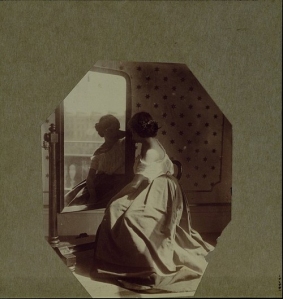 not this their wedding-day? ‘It doesn’t seem quite the thing, quite delicate, you know, to use her name in the matter.’
not this their wedding-day? ‘It doesn’t seem quite the thing, quite delicate, you know, to use her name in the matter.’
She saw it all now: he didn’t believe her. She felt a chill sense of withering under his glance.
‘Come,’ he added, ‘let us go out, or into the dining-room, somewhere, anywhere, only drop this nonsense.’He went out; he did not take her hand now—he was vexed, baffled, hurt. Had he not given her his sympathy, his attention, his belief—and his hand?—and she was fooling him. What did it mean?—she so truthful, so free from morbidness—a thing he hated. He walked up and down under the poplars, trying to get into the mood to go and join her in the house.
Margaret heard him go out; then she turned and shook the shelves; she reached her hand behind them and tried to push the boards away; she ran out of the house on to the north side and tried to find in the darkness, with her hands, a door, or some steps leading to one. She tore her dress on the old rose-trees, she fell and rose and stumbled, then she sat down on the ground and tried to think. What could she think—was she dreaming?
She went into the house and out into the kitchen, and begged Aunt Maria to tell her about the little room—what had become of it, when had they built the closet, when had they 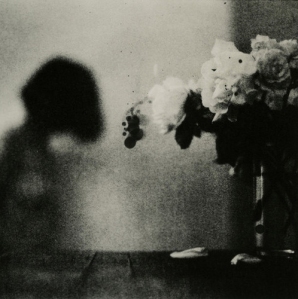 bought the gilt-edged china?
bought the gilt-edged china?
They went on washing dishes and drying them on the spot- less towels with methodical exactness; and as they worked they said that there had never been any little room, so far as they knew; the china-closet had always been there, and the gilt-edged china had belonged to their mother, it had always been in the house.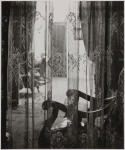
‘No, I don’t remember that your mother ever asked about any little room,’ said Hannah. ‘She didn’t seem very well that summer, but she never asked about any changes in the house; there hadn’t ever been any changes.’
There it was again: not a sign of interest, curiosity, or annoyance, not a spark of memory.
She went out to Hiram. He was telling Mr. Grant about the farm. She had meant to ask him about the room, but her lips were sealed before her husband.
Months afterwards, when time had lessened the sharpness of their feelings, they learned to speculate reasonably about the phenomenon, which Mr. Grant had accepted as something not to be scoffed away, not to be treated as a poor joke, but to be put aside as something inexplicable on any ordinary theory.
Margaret alone in her heart knew that her mother’s words carried a deeper significance than she had dreamed of at the time. ‘One thing I am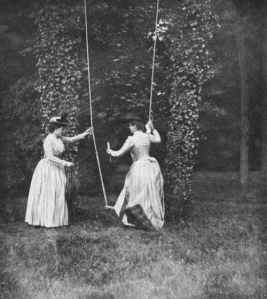 glad of, your father knows now,’ and she wondered if Roger or she would ever know.
glad of, your father knows now,’ and she wondered if Roger or she would ever know.
Five years later they were going to Europe. The packing was done; the children were lying asleep, with their travelling things ready to be slipped on for an early start.
Roger had a foreign appointment. They were not to be back in America for some years. She had meant to go up to say good-by to her aunts; but a mother of three children intends to do a great many things that never get done. One thing she had done that very day, and as she paused for a moment between the writing of two notes that must be posted before she went to bed, she said:
‘Roger, you remember Rita Lash? Well, she and Cousin Nan go up to the Adirondacks every autumn. They are clever girls, and I have intrusted to them something I want done very much.’
‘They are the girls to do it, then, every inch of them.’ ‘I know it, and they are going to.’ ‘Well?’ ‘Why, you see, Roger, that little room—’
‘Oh—’
‘Yes, I was a coward not to go myself, but I didn’t find time, because I hadn’t the courage.’
‘Oh! that was it, was it?’ ‘Yes, just that. They are going, and they will write us about it.’ ‘Want 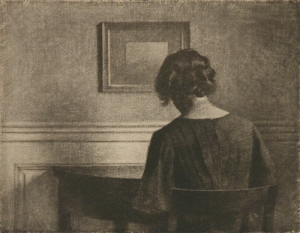 to bet?’ ‘No; I only want to know.’ Rita Lash and Cousin Nan planned to go to Vermont on their way to the Adirondacks. They found they would have three hours between trains, which would give them time to drive up to the Keys farm, and they could still get to the camp that night. But, at the last minute, Rita was prevented from going. Nan had to go to meet the Adirondack party, and she promised to telegraph her when she arrived at the camp. Imagine Rita’s amusement when she received this message: ‘Safely arrived;
to bet?’ ‘No; I only want to know.’ Rita Lash and Cousin Nan planned to go to Vermont on their way to the Adirondacks. They found they would have three hours between trains, which would give them time to drive up to the Keys farm, and they could still get to the camp that night. But, at the last minute, Rita was prevented from going. Nan had to go to meet the Adirondack party, and she promised to telegraph her when she arrived at the camp. Imagine Rita’s amusement when she received this message: ‘Safely arrived; went to the Keys farm; it is a little room.’
went to the Keys farm; it is a little room.’
Rita was amused, because she did not in the least think Nan had been there. She thought it was a hoax; but it put it into her mind to carry the joke further by really stopping herself when she went up, as she meant to do the next week.She did stop over. She introduced herself to the two maiden ladies, who seemed familiar, as they had been described by Mrs. Grant.
They were, if not cordial, at least not disconcerted at her visit, and willingly showed her over the house. As they did not speak of any other stranger’s having been to see them lately, she became confirmed in her belief that Nan had not been there.
In the north room she saw the roses and morning-glory paper on the wall, and also the door that should open into— what?
 She asked if she might open it. ‘Certainly,’ said Hannah; and Maria echoed, ‘Certainly.’ She opened it, and found the china-closet. She experienced a certain relief; she at least was not under any spell. Mrs. Grant left it a china-closet; she found it the
She asked if she might open it. ‘Certainly,’ said Hannah; and Maria echoed, ‘Certainly.’ She opened it, and found the china-closet. She experienced a certain relief; she at least was not under any spell. Mrs. Grant left it a china-closet; she found it the 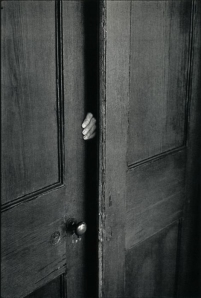 same. Good.
same. Good.
But she tried to induce the old sisters to remember that there had at various times been certain questions relating to a confusion as to whether the closet had always been a closet. It was no use; their stony eyes gave no sign.
Then she thought of the story of the sea-captain, and said, ‘Miss Keys, did you ever have a lounge covered with India chintz, with a figure of a peacock on it, given to you in Salem by a sea-captain, who brought it from India?’
‘I dun’no’ as I ever did,’ said Hannah. That was all. She thought Maria’s cheeks were a little flushed, but her eyes were like a stone wall.
She went on that night to the Adirondacks. When Nan and she were alone in their room she said, ‘By-the-way, Nan, what did you see at the farm-house? and how did you like Maria and Hannah?’
Nan didn’t mistrust that Rita had been there, and she began excitedly to tell her all about her visit. Rita could almost have believed Nan had been there if she hadn’t known it was not so. She let her go on for some time, enjoying her enthusiasm, and the impressive way in which she described her opening the door and finding the ‘little room.’ Then Rita said: ‘Now, Nan, that is enough fibbing. I went to the farm myself on my way up yesterday, and there is no little room, and there never has been any; it is a china- closet, just as Mrs. Grant saw it last.’
closet, just as Mrs. Grant saw it last.’
She was pretending to be busy unpacking her trunk, and did not look up for a moment; but as Nan did not say anything, she glanced at her over her shoulder. Nan was actually pale, and it was hard to say whether she was most angry or frightened. There was something of both in her look. And then Rita began to explain how her telegram had put her in the spirit of going up there alone. She hadn’t meant to cut Nan out. She only thought— Then Nan broke in: ‘It isn’t that; I am  sure you can’t think it is that. But I went myself, and you did not go; you can’t have been there, for it is a little room.’
sure you can’t think it is that. But I went myself, and you did not go; you can’t have been there, for it is a little room.’
Oh, what a night they had! They couldn’t sleep. They talked and argued, and then kept still for a while, only to break out again, it was so absurd. They both maintained that they had been there, but both felt sure the other one was either crazy or obstinate beyond reason. They were wretched; it was perfectly ridiculous, two friends at odds over such a thing; but there it was—‘little room,’ ‘china-closet,’—‘china-closet,’ ‘little room.’
The next morning Nan was tacking up some tarlatan at a window to keep the midges out. Rita offered to help her, as she had done for the past ten years. Nan’s ‘No, thanks,’ cut her to the heart.
‘Nan,’ said she, ‘come right down from that step-ladder and pack your satchel. The stage leaves in just twenty minutes. We can catch the afternoon express train, and we will go together to the farm. I am either going there or going home. You better go with me.’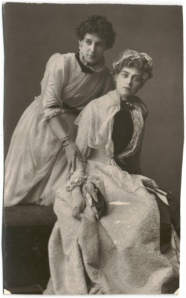
Nan didn’t say a word. She gathered up the hammer and tacks, and was ready to start when the stage came round.
It meant for them thirty miles of staging and six hours of train, besides crossing the lake; but what of that,  compared with having a lie lying round loose between them! Europe would have seemed easy to accomplish, if it would settle the question.
compared with having a lie lying round loose between them! Europe would have seemed easy to accomplish, if it would settle the question.
At the little junction in Vermont they found a farmer with a wagon full of meal-bags. They asked him if he could not take them up to the old Keys farm and bring them back in time for the return train, due in two hours.
They had planned to call it a sketching trip, so they said, ‘We have been there before, we are artists, and we might find some views worth taking; and we want also to make a short call upon the Misses Keys.’
‘Did ye calculate to paint the old house in the picture?’
Possible they might do so. They wanted to see it, anyway.
‘Waal, I guess you are too late. The house burnt down last night, and everything in it.’
1895
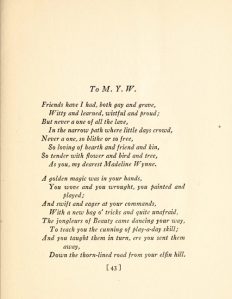 The contrast between the plain and innocuous -even chatty- tone of this story, and its ‘New England Gothic’ narrative is difficult to catch but then impossible to miss. The conversational note is at obvious odds with its hallucinatory content, confusing cast of characters and shifts in voice.
The contrast between the plain and innocuous -even chatty- tone of this story, and its ‘New England Gothic’ narrative is difficult to catch but then impossible to miss. The conversational note is at obvious odds with its hallucinatory content, confusing cast of characters and shifts in voice.
The juxtaposition is so dramatically disconcerting that the whole story lies on top of the mind like a large pool of water on a lily pad, and threatens to slip off entirely with no more than the slightest hint of provocation.
The apparitional atmospherics which cast their supernatural shadow over the entire story, serve a multiple purpose: they proved a tacit, covert and tangential commentary on the inner content of the four different pairing – the female siblings, Hannah and Maria the parents of the principle narrator Margaret Grant, Margaret and her husband Roger, and Margaret’s cousin Nan and her partner of ten years, Rita Lash, but furthermore, there is the classic code we now easily recognise and interpret as ‘lesbian’ – when female pairings occur in the presence of the uncanny or unreal.
The chord struck by ‘The Little Room’ seems also to have some of the undertones of Gaslight, that acutely psychological film with Ingrid Bergman and Charles Boyer, where a husband resolves to drive his naive and innocent wife mad by making her doubt her perception of reality – and therefore 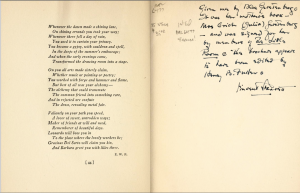 her sanity.
her sanity.
Shared reality is the basis of what we take the world to be. Even when we freely acknowledge that no two of us experience the same phenomenon in the same way, we don’t doubt the existence of either the object or the experience. The evidence of the senses, even when treated with a wry humour, is not something that we like to question or tamper with, because the moment we do so we begin to lose our footing in the ordinary world, and enter the realm of the uncanny.
The symbolic four dyads and two – more accurately three – generations in ‘The Little Room’ seem to represent separate social, sexual and psychic ‘realities’.
The old sisters, with the set choreography of their roles in relation to each other, are 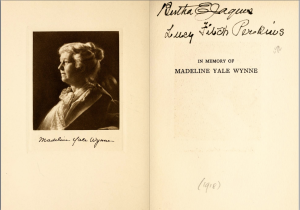 very much a couple. Their inexplicable bond permits them to corroborate each other in the event of an oscillating reality – the transmutation of the room to china closet and back again – with unruffled certainty in each of the room’s manifestations. We can never be sure whether either one or both of them are aware of the binary disparity of room vs. closet, or if they have some perverse reason for refusing to confirm it to anyone else.
very much a couple. Their inexplicable bond permits them to corroborate each other in the event of an oscillating reality – the transmutation of the room to china closet and back again – with unruffled certainty in each of the room’s manifestations. We can never be sure whether either one or both of them are aware of the binary disparity of room vs. closet, or if they have some perverse reason for refusing to confirm it to anyone else.
Margaret’s parents seem to have come to some kind of truce about their separate understandings about the nature of ‘the little room’, but their uneasy compromise seems in some way connected to their tragic lives. Her father dies in ‘the war’ – which we must take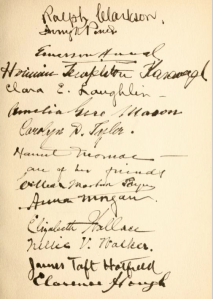 to mean the Civil War – and her mother seems to lose substance and fade away before dying, and her decline brings to my mind William Blake’s poem about psychic wasting ‘The Sick Rose’*
to mean the Civil War – and her mother seems to lose substance and fade away before dying, and her decline brings to my mind William Blake’s poem about psychic wasting ‘The Sick Rose’*
The young married couple Margaret and Roger do not fare so well. Margaret, who saw the room as a child, arrives with her husband to find a china closet in its place. This experience with the alternate and mutually exclusive realities of the room’s separate manifestations which she knows beyond doubt by virtue of the evidence of her senses – becomes a sort of hallucination in the presence of the unwavering certainty of her husband’s male pride.
Roger sees only the china closet, and with this splintering of their previously shared and unquestioned perceptual world there follows the predictably souring outcome of doubt and dismissal and loss of faith.
Some years have passed when Roger’s career require that he and Margaret leave for Europe. Margaret has not forgotten the eerie inexplicable happenings that they have now mutually decided never to discuss, so prior to their departure she writes a letter Nan and Rita asking them to investigate the matter and sort it out for her. Margaret acknowledges that she lacks the courage to conduct the investigation herself, but both she and Roger are heartily convinced that Nan and Rita have exactly what it takes.
Nan and Rita are also obviously a couple -and when they happen to see ‘the little room’ individually, each has her own predictably differing experiences  of it’s eliding reality. Their irreconcilable ‘realities’ of the room’s dual nature causes the now familiar spectre of doubt to interpose itself between them. Unlike the two married couples however, the two women struggle with each other in an effort to settle their differences of perception. They will not allow their bond of ten years duration to be easily shattered, and are willing to go to whatever lengths – and travel whatever distances – (Europe would not be too far) in order to save their shared experience of reality from being meddled or interfered with. They show every evidence of having been a happy and stable pair for a full decade, and when the little room begins to cause the first unwelcome cracks in the structure of their relationship, they are determined to undertake the long and tiresome journey to the old Aunts’ home in order to settle once and for all the matter of the perplexing little room.
of it’s eliding reality. Their irreconcilable ‘realities’ of the room’s dual nature causes the now familiar spectre of doubt to interpose itself between them. Unlike the two married couples however, the two women struggle with each other in an effort to settle their differences of perception. They will not allow their bond of ten years duration to be easily shattered, and are willing to go to whatever lengths – and travel whatever distances – (Europe would not be too far) in order to save their shared experience of reality from being meddled or interfered with. They show every evidence of having been a happy and stable pair for a full decade, and when the little room begins to cause the first unwelcome cracks in the structure of their relationship, they are determined to undertake the long and tiresome journey to the old Aunts’ home in order to settle once and for all the matter of the perplexing little room.
But this is Madeline Yale Wynne’s apparent prefiguration of a quantum reality, and as such, it strongly resists an unambiguous answer. Young’s double-slit experiment, the Copenhagen interpretation, and Shroedinger’s cat all tell us the same thing: reality can be a very slippery and elusive beast, and very hard to handle. It can be lying quiescent in some other universe until someone decides to observe it, whereupon it can suddenly spring into existence, or it can be doing simultaneously impossible things until one decides to place an observer in the room, whereupon it reverts to behaving predictably and demurely, or it can be two entirely separate things – manifesting itself either as matter or energy – or both.
In Wynne’s brilliant and enigmatic story, the little room occasions four separate versions of reality among the four dyads involved. The complex symbolism 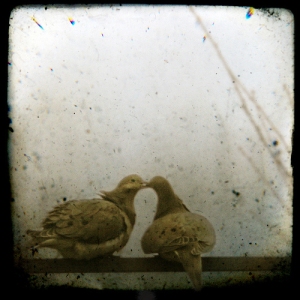 and the many permutations and combinations of sexual orientation, from the presumably chaste and celibate to the transparently lesbian, cover a range and degree of communication between pairs. The fused personality of stronger and weaker spinster sisters, the delicate younger half-sister and the husband from whom she is later separated by war and death, Margaret and Roger with their three children and outwardly comfortable and well-to do lives who have agreed at Roger’s behest never to discuss the matter of the room, and Nan and Rita who will not be deterred from confronting and clarifying whatever seems to want to come between them, each illustrates a different type and degree of human connection.
and the many permutations and combinations of sexual orientation, from the presumably chaste and celibate to the transparently lesbian, cover a range and degree of communication between pairs. The fused personality of stronger and weaker spinster sisters, the delicate younger half-sister and the husband from whom she is later separated by war and death, Margaret and Roger with their three children and outwardly comfortable and well-to do lives who have agreed at Roger’s behest never to discuss the matter of the room, and Nan and Rita who will not be deterred from confronting and clarifying whatever seems to want to come between them, each illustrates a different type and degree of human connection.
Wynne drops some very large hints about the disconnections in Margaret and Roger’s relationship: Roger confuses yellow calico and blue chintz, is averse about engaging in a discussion which would clarify a significant difference with his wife, and we are left with the distinct feeling that it would be unwise for Margaret to speak to him about any but her most material perceptions.
A quantum mystery can never have anything but a quantum ending. Heisenberg’s principle asserts that quantum paradoxes and dual realities can never be resolved by a single observation. The little room seems to sense that something about Nan and Rita’s determined decision to put their perceptions – and realities – to the test would be inimical to its – and perhaps their – survival, and so ‘the little room’ consumes itself along with the house of which it had long been an inexplicable part.
What became of Hannah and Maria we shall never know:
 But Madeline Yale Wynne and her ‘friend’ Annie Putnam set up house together in 1883, and lived together for the next thirty-five years, surrounded by their friends ‘both gay and grave’ until Wynne’s death in 1918.
But Madeline Yale Wynne and her ‘friend’ Annie Putnam set up house together in 1883, and lived together for the next thirty-five years, surrounded by their friends ‘both gay and grave’ until Wynne’s death in 1918.
This is the link to a memorial booklet made by her friends for Madeline Yale Wynne from which the above facsimiles are taken.
http://www.archive.org/stream/inmemoryofmadeli00lawr#page/n0/mode/2up
The following biographical thumbnail was extracted from the following site.
http://www.findagrave.com/cgi-bin/fg.cgi?page=gr&GRid=52832781
Birth: Sep. 25, 1847
Newport
Herkimer County
New York, USADeath: Jan. 4, 1918
Asheville
Buncombe County
North Carolina, USA
Madeline Yale Wynne was a talented artist of the Arts & Crafts movement who credits her father, Linus Yale, Jr., with giving her metal 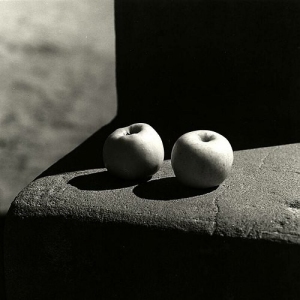 working experience as a child in his lock shop right beside her brothers. She studied art with artist George Fuller, a close friend of her father’s and later at the Museum School of the Museum of Fine Arts in Boston, at the Arts Students’ League in New York City and in Europe. Madeline married Henry Winn in 1865 and they had two sons but by 1874 they were separated. She lived and worked with her brother, Julian, in Chicago making jewelry but left when he died. She had a major influence on the Arts & Crafts Movement in Chicago and a group of artists there took the title of her short story “The Little Room” as the name of their salon. She spent six months of the year in Deerfield, Massachusetts where she was president of Deerfield Industries where artisans made and sold their crafts. Madeline often spent the remainder of the year with her mother near Boston. In 1883 she began sharing her home and studio with Miss Annie Putnam and changed the spelling of her last name. In 1885 she and Annie Putnam purchased The Manse in Deerfield and in 1904 they became year-round residents of Deerfield where they were very active practicing and supporting the arts. She was also an author and her short story “The Little Room” still appears in anthologies. In her later years she spent some winter months in Tryon, North Carolina.
working experience as a child in his lock shop right beside her brothers. She studied art with artist George Fuller, a close friend of her father’s and later at the Museum School of the Museum of Fine Arts in Boston, at the Arts Students’ League in New York City and in Europe. Madeline married Henry Winn in 1865 and they had two sons but by 1874 they were separated. She lived and worked with her brother, Julian, in Chicago making jewelry but left when he died. She had a major influence on the Arts & Crafts Movement in Chicago and a group of artists there took the title of her short story “The Little Room” as the name of their salon. She spent six months of the year in Deerfield, Massachusetts where she was president of Deerfield Industries where artisans made and sold their crafts. Madeline often spent the remainder of the year with her mother near Boston. In 1883 she began sharing her home and studio with Miss Annie Putnam and changed the spelling of her last name. In 1885 she and Annie Putnam purchased The Manse in Deerfield and in 1904 they became year-round residents of Deerfield where they were very active practicing and supporting the arts. She was also an author and her short story “The Little Room” still appears in anthologies. In her later years she spent some winter months in Tryon, North Carolina.
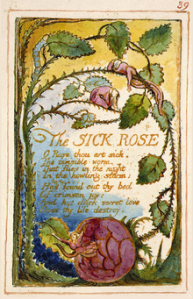
The invisible worm,
That flies in the night
In the howling storm:Has found out thy bed
Of crimson joy:
And his dark secret love
Does thy life destroy.
